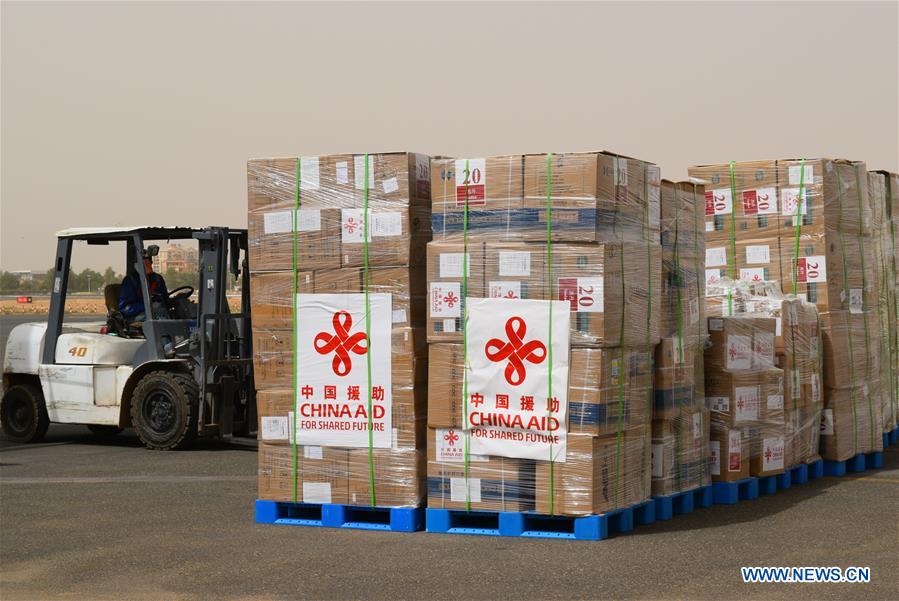China and African countries proceed together
- By George N. Tzogopoulos
 0 Comment(s)
0 Comment(s) Print
Print E-mail China.org.cn, June 23, 2020
E-mail China.org.cn, June 23, 2020

The beginnings of the COVID-19 pandemic caught the world by surprise. However, in particularly difficult circumstances, cooperation among countries has facilitated efforts to mitigate the pain.
A characteristic example is the evolution of the Sino-African partnership in the last few months. When the virus was first detected and reported in Wuhan, ministers of the African Union member-states expressed their solidarity with the Chinese government and people.
In return, during a press briefing on Feb. 10, the spokesperson for the Chinese Ministry of Foreign Affairs appreciated this "strong support" and expressed the hope that the friendship thus demonstrated could grow deeper amid unprecedented challenges.
Indeed, this is what has happened. When COVID-19 started to hit Africa, China was quick in providing medical assistance. Yet, it should be stressed that collaboration between Chinese and African health authorities and professionals is nothing new. It exhibits continuity.
According to an article published in The Lancet medical journal, it can be traced back to 1963. In the previous decade, in particular, China's role in Africa became more important as it actively supported the development and equipment of the latter's centers for disease control and prevention.
Its contribution to the fight against Ebola, for instance, was remarkable. China regularly collaborated with its partners across the world to help Africa, including the U.S.
China and African states have also fostered new synergies via the Forum for China-Africa Cooperation (FOCAC). Its 2018 Beijing summit, for example, created the blueprint for joint actions for a period from 2019 until 2021, including the health sector.
Under the section "Medical Care and Public Health," China undertook a commitment to, inter alia, upgrade 50 medical and health programs for Africa, undertake anti-malaria projects and train medical staff.
In his recent speech at the extraordinary China-Africa Summit teleconference, President Xi Jinping referred to the healthcare initiative adopted at the Beijing 2018 summit and promised that China would, ahead of schedule, start construction of the African centers for disease control headquarters.
President Xi had already focused on the need of providing support to Africa in his address at the 73rd World Health Assembly in May. He then talked not only about medical assistance against COVID-19, but also efforts to implement the debt service suspension initiative for the poorest countries.
With his speech to the aforementioned extraordinary summit, he reiterated his support for this mechanism and encouraged "friendly consultations with African countries according to market principles to work out arrangements for commercial loans with sovereign guarantees."
He went even further, however, suggesting that China would cancel the debt of relevant African countries in the form of interest-free government loans due to mature by the end of 2020.
There is no question that the pandemic has influenced the ability of developing and poor countries to service their debts. As Chinese financial institutions have provided some of them with loans, the issue needs to be addressed.
Despite speculation in some international media about potential failures, the Chinese administration demonstrates its preparedness to respond to the existing problem. Solutions are not always easy, but they are possible.
The much-expected recovery from the pandemic will pave the way for all cooperation plans agreed in Beijing in 2018 to proceed at a faster path. At the writing, 93,928 active cases of COVID-19 are being monitored in Africa according to WHO. South Africa is the country suffering the most.
The joint statement of the extraordinary summit, which was attended by UN Secretary General Antonio Guterres and WHO Director-General Tedros Adhanom Ghebreyesus along with Chinese and African leaders, underscored the close relationship as well as common concerns and interests.
The traditionally good political climate is being reflected in the work of scholars. In April Chinese and African think tanks issued a joint proposal to work together. General mobilization only helps the realization of objectives set by the political elites.
George N. Tzogopoulos is a columnist with China.org.cn. For more information please visit:
http://m.formacion-profesional-a-distancia.com/opinion/GeorgeNTzogopoulos.htm
Opinion articles reflect the views of their authors, not necessarily those of China.org.cn.
If you would like to contribute, please contact us at opinion@china.org.cn.





